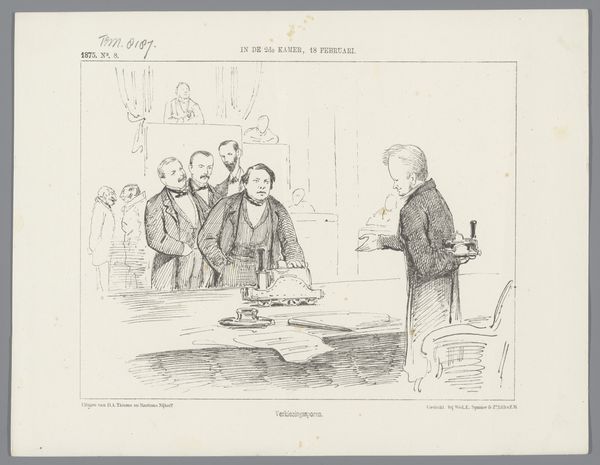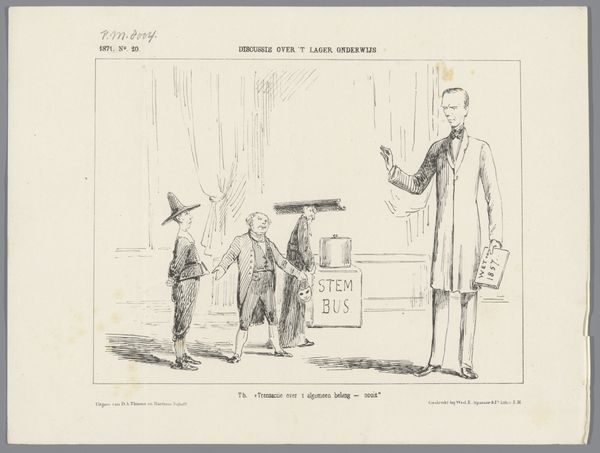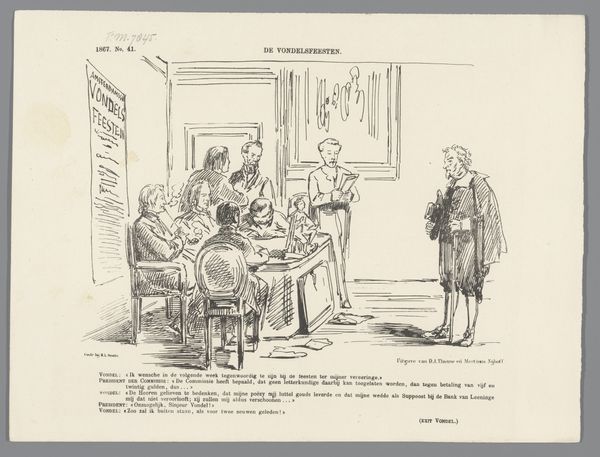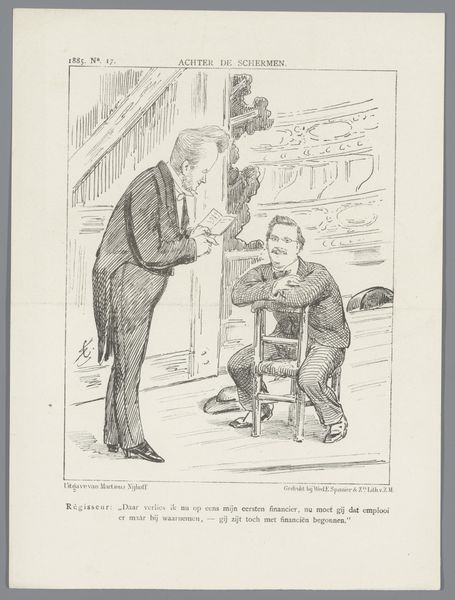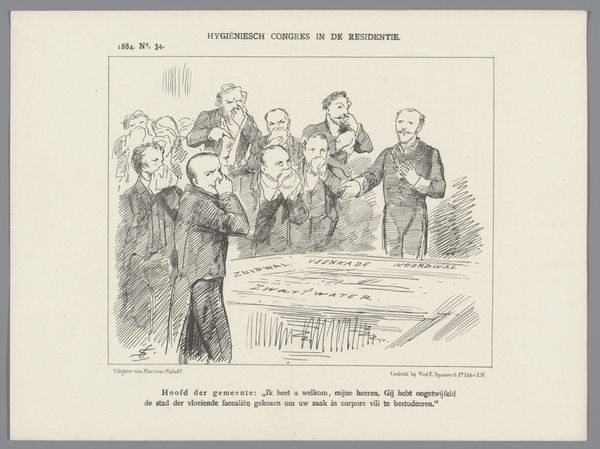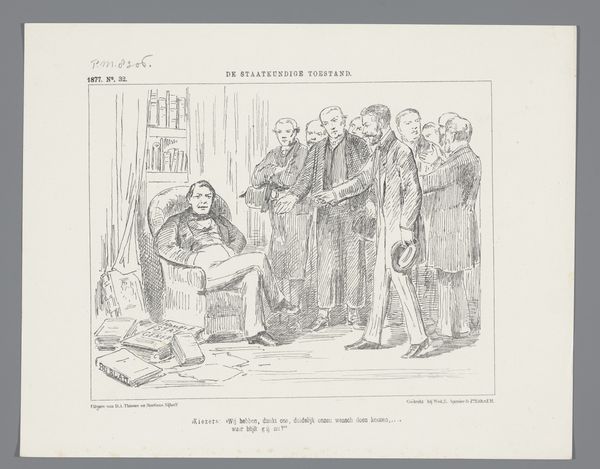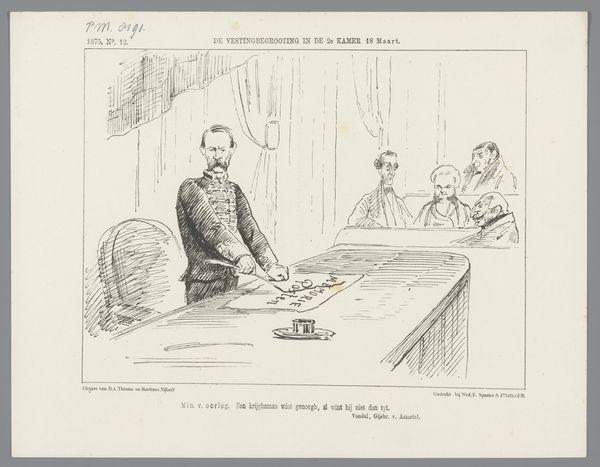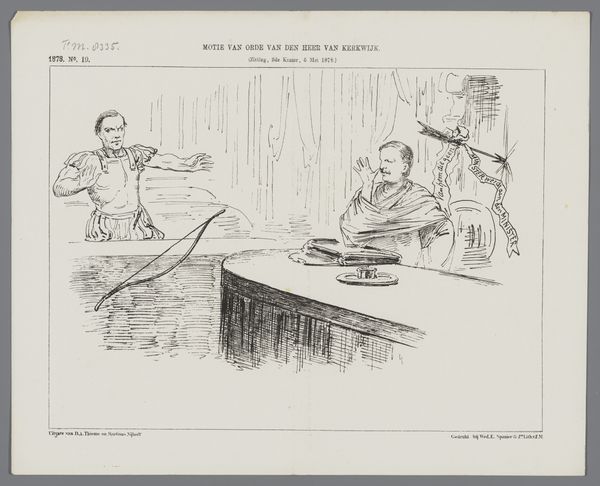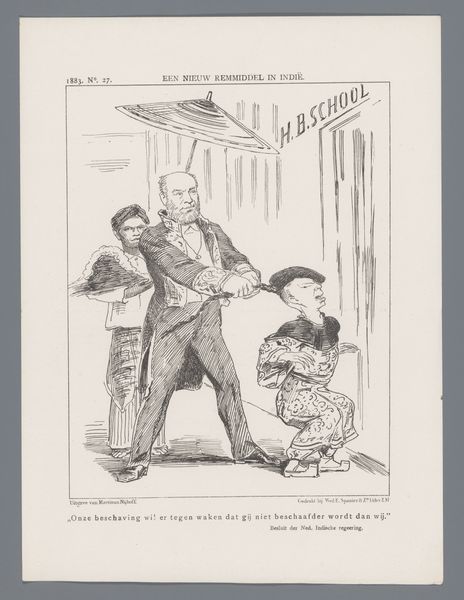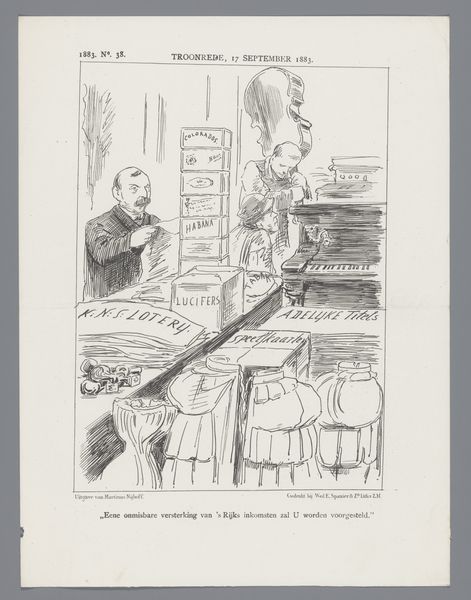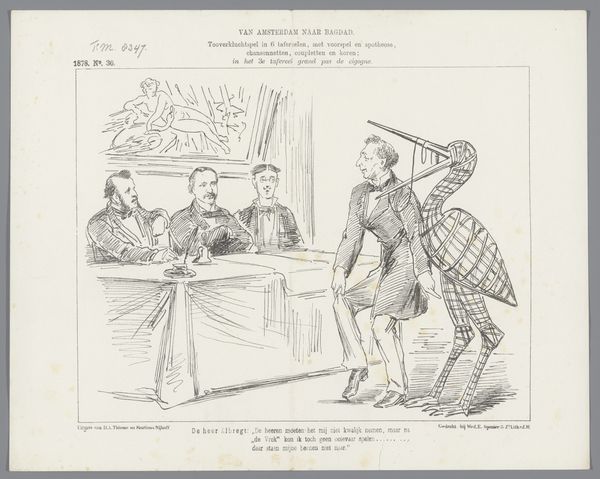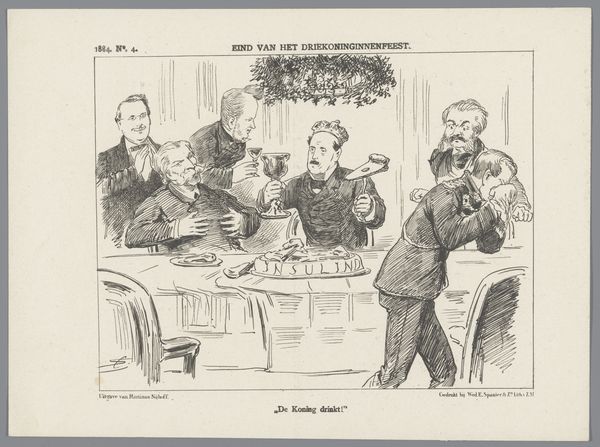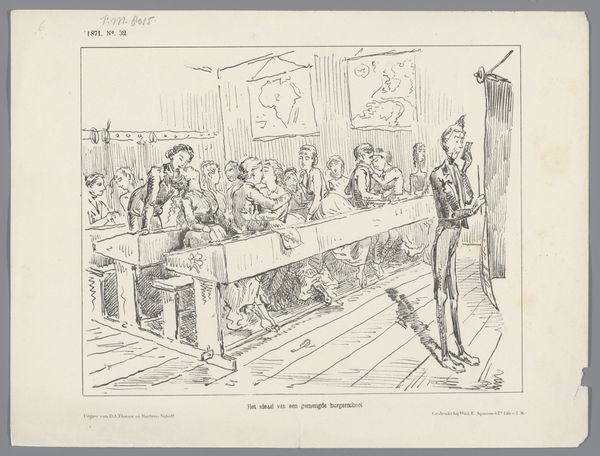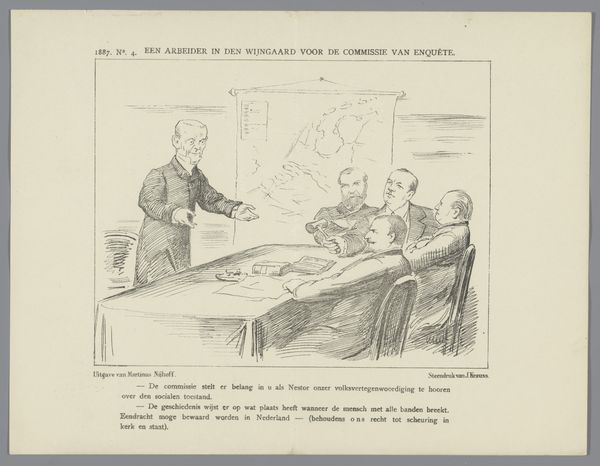
#
underwear fashion design
#
comic strip sketch
#
pale palette
#
sketch book
#
personal sketchbook
#
sketchwork
#
visual diary
#
sketchbook drawing
#
storyboard and sketchbook work
#
sketchbook art
Dimensions: height 215 mm, width 275 mm
Copyright: Rijks Museum: Open Domain
Editor: This is *Spotprent* created by Johan Michaël Schmidt Crans in 1878. It looks like a lithograph or etching. There's a central figure delivering a speech and another group seated around a table. I am intrigued by the artist's use of line. What do you see in this piece that I might be missing? Curator: Focusing purely on its intrinsic visual elements, we can see a clear division created by line and form. The solitary figure stage left, presented with meticulous contours, is set in opposition to the mass of figures tightly arranged at the table on the right. Observe how line quality also delineates depth. Scumbling creates spatial recession at the backdrop of the central figure and at the background group of people. Do you notice a difference in how the two groupings are constructed? Editor: Now that you mention it, yes. The figure standing seems deliberately isolated, lighter, more ephemeral, created by fewer, more deliberate lines, as if he is in conflict with the other people, the use of shadows adding a psychological weight and volume to that area. Curator: Precisely. Further, notice how the strong horizontality of the table contrasts with the vertical lines surrounding it, which directs the eye, but is not completely enclosing. There is a clear engagement in playing with perspective. Editor: So, you're saying it's the lines, shapes, and the way they're arranged that create the work's sense of... what exactly? Curator: Primarily tension. By employing careful attention to the relationship between the central figure and others, the lithograph successfully highlights themes and conflict through compositional elements alone, before external historical interpretation is introduced. Editor: I see. It’s less about the story and more about the relationships created within the image itself. Thanks for pointing that out. I'll definitely pay closer attention to how artists use these elements going forward.
Comments
No comments
Be the first to comment and join the conversation on the ultimate creative platform.
